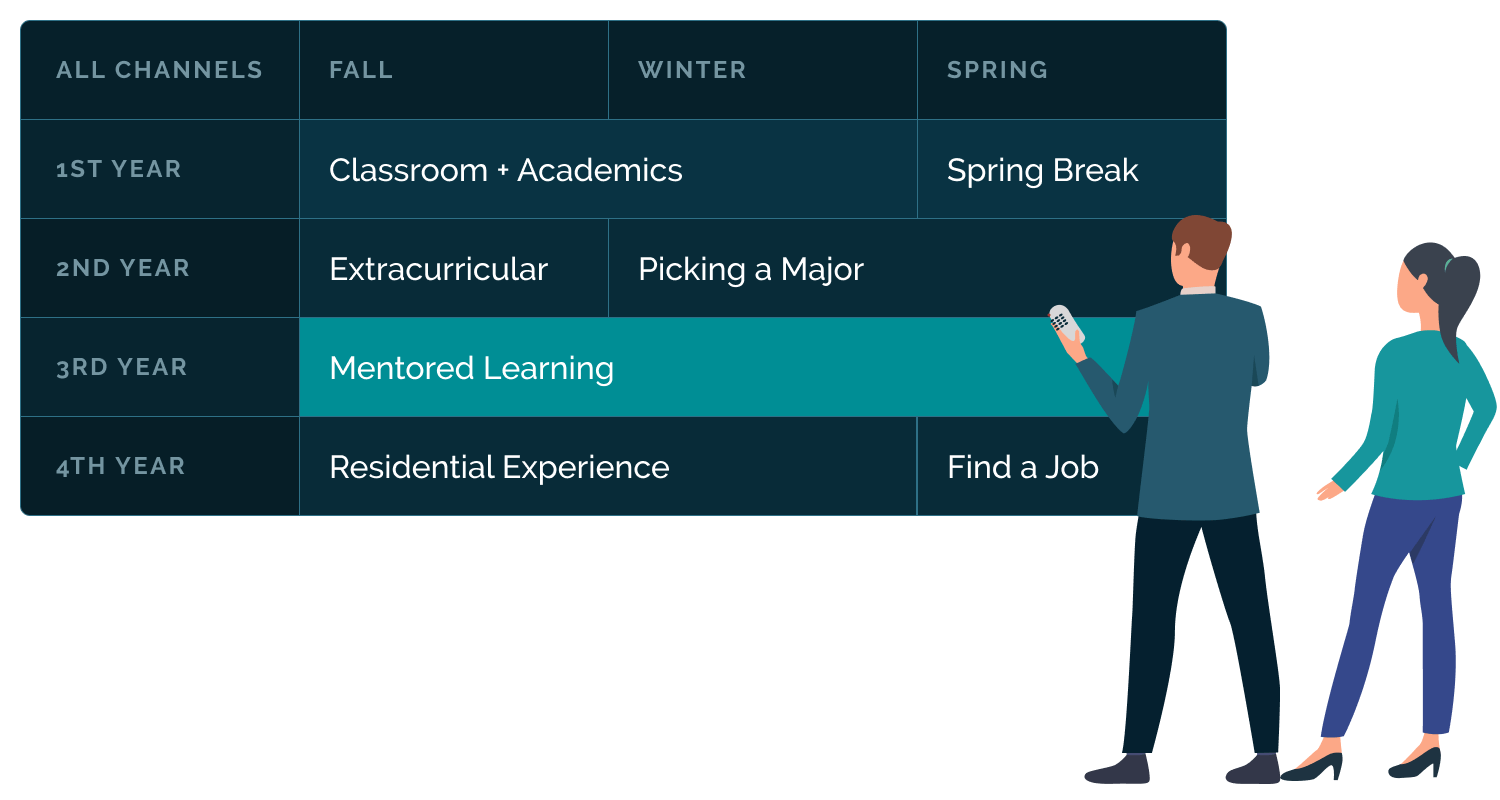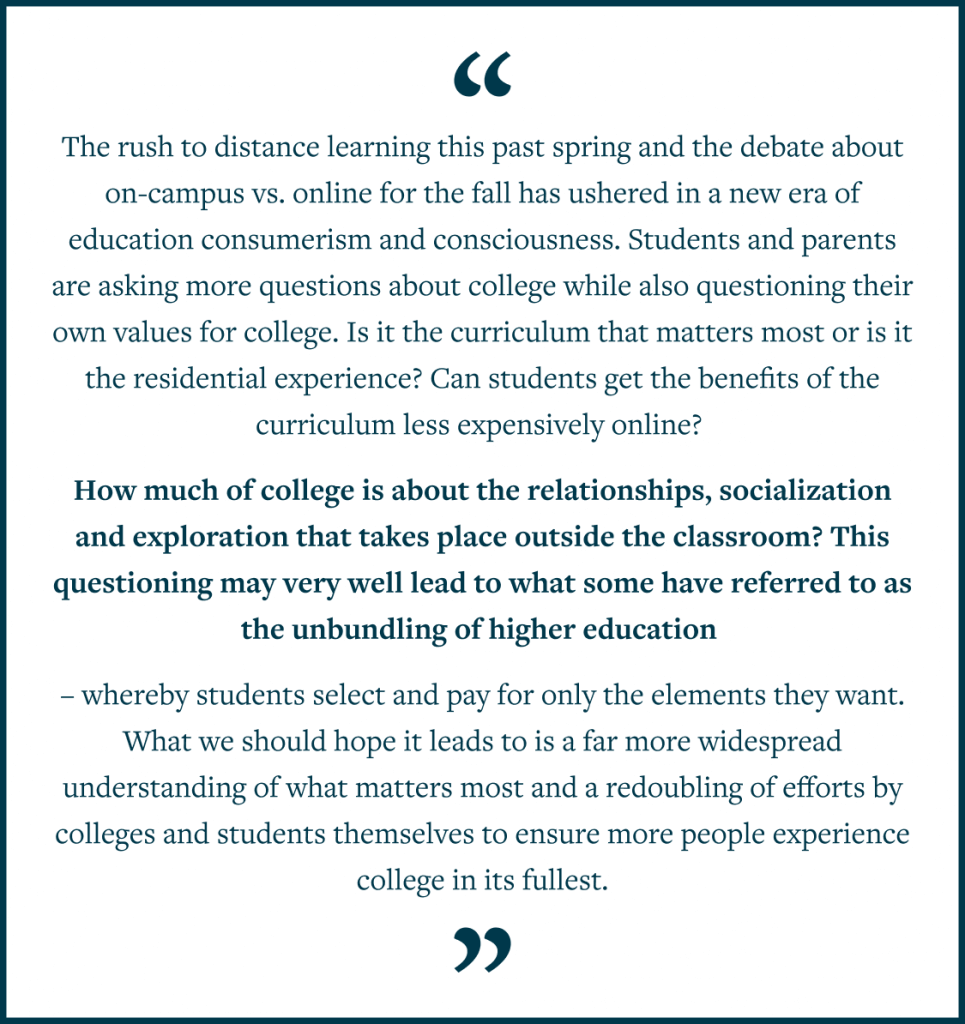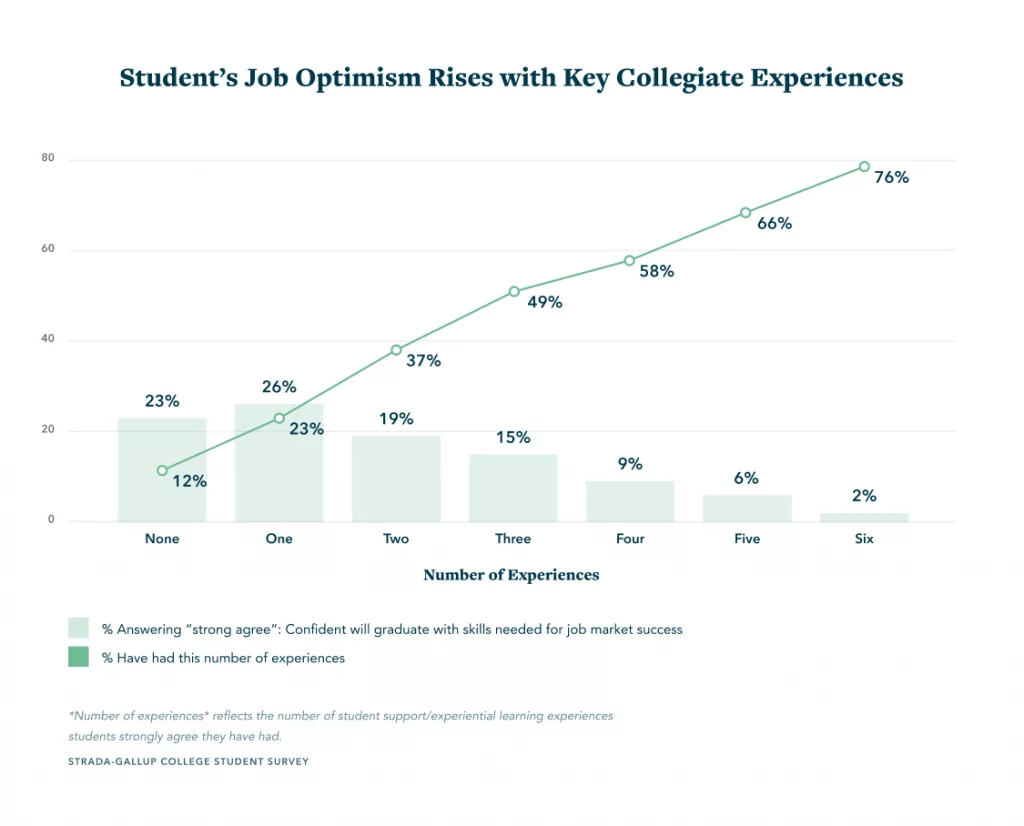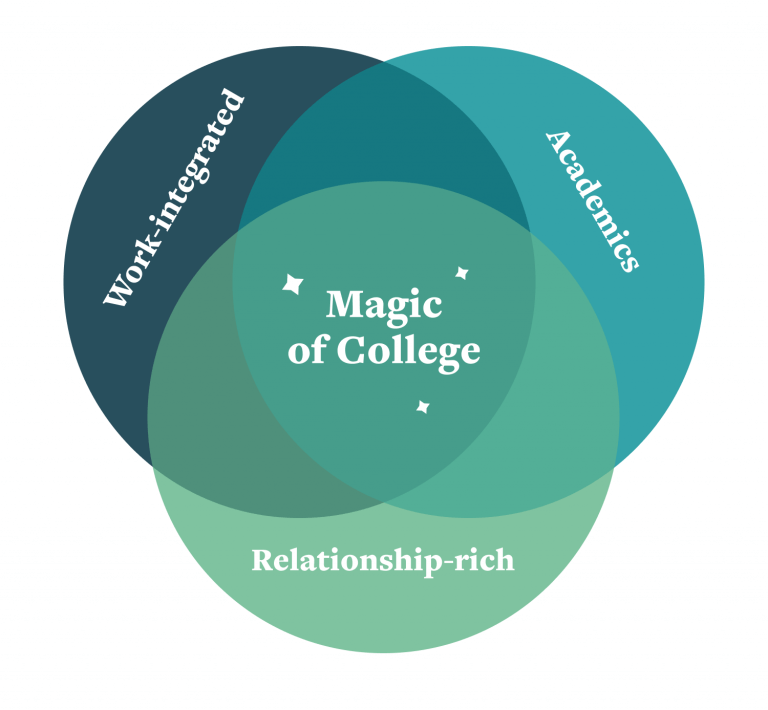Alumni & Advancement
Scaling Student Confidence
Brandon Busteed Discusses Building “Relationship-Rich” and “Work-Integrated” College Experiences in a Recent Forbes Article We can choose the TV channels […]
Alumni & Advancement
Brandon Busteed Discusses Building “Relationship-Rich” and “Work-Integrated” College Experiences in a Recent Forbes Article We can choose the TV channels […]

Like many of my generation, I cut the cable cord in my house. I got rid of the bulky cable box and bought an AppleTV instead, and it’s great. I downloaded all my streaming apps, subscribed to a few sports packages, and made sure I had access to all my favorite shows. Even if I have to rent or buy an episode or movie every now and then, I feel like I have more control over the content I’m paying for. All without having to buy 30+ channels I’ll never watch.
This whole process started with one simple question: am I getting the most out of what I’m paying?
It’s not a big stretch to apply this question to higher education — especially in light of the changes and adaptations schools had to make in response to Covid. Students and their families are evaluating the experience that institutions are able to deliver in these circumstances and wondering whether they shouldn’t be shedding those elements they aren’t using.
As Brandon Busteed says in “The True ‘Magic’ Of College Happens For Just 2 Out Of 100 Students,” a recent article published in Forbes, perhaps the biggest impact the pandemic has had on higher education is the increased awareness of what constitutes value in the college experience.

The phrase “the unbundling of higher education” is not a post-pandemic invention, but its use has certainly increased since March. Rather than dismantle the pieces; however, Busteed argues that we should focus on the ones our alumni tell us mattered the most.
Busteed points to the Gallup “Big Six” as experiences that higher education should focus on and not leave to chance. 82% of alumni who had all six experiences “strongly agreed” that college prepared them well for life outside college in the original 2015 study. A 2019 study affirmed the importance of these experiences, with 76% of alumni who had all six experiences saying that they were confident they graduated with skills needed for job market success.
The Gallup study lists these discreet experiences but more importantly, Busteed puts them into two categories: “relationship-rich” and “work-integrated.” Students who have the chance to apply what they are learning in the classroom to a real-world work situation and have the support of connections and mentors within the community will be better prepared for what lies ahead after college. Seems intuitive enough.

The problem is, as you may have guessed from the title of Busteed’s Forbes article, that too few students have these experiences. In the 2019 study, over two-thirds of respondents (68%) said they had two of these experiences or fewer. The study also shows that the more of these experiences a student has, the greater their confidence that they’re ready for post-college work.
As we in higher education continue to wrestle with the effects of the pandemic, it has become increasingly clear that we’re building foundations for a new student journey. One that will considerably impact the next generation of college students. In those foundations, the categories of “relationship-rich” and “work-integrated” have to be central pillars. Our alumni are telling us as much.

The challenge is ensuring scale. Whether we are providing one of the “Big Six” or creating a new experience that pairs these two pillars together, every student needs to have the chance to graduate with the confidence that they’ll be successful in the workforce. That requires a concerted effort to educate students on the importance of these experiences and provide mechanisms through which they obtain them.
This is not just the work of one department or one office. If it’s going to be successful, it needs to be a university-wide initiative. From enrollment through alumni relations, every stakeholder has a lot to gain by creating this foundation. It will take vision, strategy, and intentionality.
As Busteed said, “Scaling the magic will certainly require time and resources. And the time and resources needed to do so will have to come from de-prioritizing other things – which many colleges struggle to do. It’s not a matter of whether colleges can afford to scale the magic. They can’t afford not to scale it.”
At PeopleGrove, we’re proud to work with institutions who are innovating to ensure their student journey is “relationship-rich” and “work-integrated,” especially for vulnerable populations. Though initiatives like BridgesAlliance, we hope to continue to drive scale across higher education and bring these opportunities to more and more students.
Learn more about our approach and reach out to connect with us at peoplegrove.com.